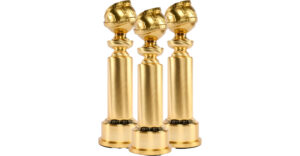Virginia’s Next Governor Should Work to Eradicate Pharmacy Deserts
In 2023, there were 1.6 million Black residents in Virginia, and Black voters made up 19% of the voting age population. With less than 60 days remaining both Lt. Governor Winsome Sears and Congresswoman Abigail Spanberger have a unique opportunity to galvanize this voting base. The first candidate to address the issue of lowering drug costs for Virginia’s minority underserved communities will have tapped into an urgent Civil rights issue of 2025 and motivated a block of voters.
The rich and powerful can only provide money for a campaign, but voters determine elections. Nevertheless, they will try so I am not surprised by the Pharmaceutical Industry’s campaign contributions and lobbying efforts in Virginia.
Pharmaceutical manufacturers and their backers spent more than $400,000 in support of Virgina politicians 2024 for pro-pharma legislation. This tiny drop in their estimated $1.7 trillion revenue bucket can have a huge effect on Virginia’s minorities.
Take the pro-pharma bill SB 875, which became law just this year. It forces any PBMs (pharmacy Benefit Manager) like CVS, or Express Scripts contracted with the State of Virginia to make their pricing more transparent.
This may seem noble on the surface, but PBMs exist to negotiate lower drug prices through health insurance plans, Medicare, and other health programs. By passing SB 875 into law, they took away PBMs’ leverage against Big Pharma companies during price negotiations. In other words, Virginia’s lawmakers legally forced the poker hand of any PBM who wants to do business with the state. It also opens up PBMs for more attacks – and more anti-PBM legislation in Virginia – down the road.
So why is this law so racially ominous? Without PBMs, pharmaceutical companies have all the pricing leverage they need to increase drug costs by 40% to 50%. Virginia’s communities of color, who often stand on the lower end of the pay scale, will be affected the most.
Worse, SB 875 could contribute to higher disease and mortality rates among minorities if drug prices are raised. The average adherence rates of Blacks and Hispanics to their drug regimens are 4.8% to 6.5% lower than whites. That’s roughly 20-25 fewer days of medication use per year, which can lead to poorer health outcomes. Rising prices will increase these rates, leading to much worse health outcomes.
Communities of color already face much higher rates of chronic illness. Black Americans are 30% more likely than white Americans to die from heart disease. Hispanic and Latino adults are 70% more likely to be diagnosed with diabetes than non-Hispanic whites. Minorities also face much higher rates of stroke, high blood pressure, obesity, kidney disease, asthma, and other health issues. If Big Pharma gets to raise its prices even higher, more of Virginia’s minorities will die.
PBMs are also vital for our dramatically changing pharmacy landscape. Thousands of pharmacies are closing across America, forming what public health policy experts call “pharmacy deserts.”
Between 2016 and 2024, Virginia lost about 6% of its pharmacies, with 50 of those pharmacies closing in 2024 alone. A 2025 study from Virigina Commonwealth University identified 44 pharmacy deserts where gaps in pharmacy services need plugging. Many of them are urban centers with higher minority populations.
PBMs are helping to close these gaps through mail-order drug deliveries by bringing much needed and affordable access to pharmaceuticals in these pharmacy deserts, where Black and Hispanic communities are disproportionately affected. But if Big Pharma had its way,
We must encourage big PHRAMA to put people over profits. They’re spending $400,000 of their roughly $1.7 trillion in revenue and massive profits to influence politicians and eradicate PBMs, who are helping minorities by bringing down the exorbitant drug prices that pharmaceutical manufacturers set and making drugs more accessible.
Weakening PBMs and giving pricing power to Big Pharma would only make the problem worse. Americans already pay nearly 300% more for drugs than citizens of other countries thanks to Big Pharma’s pricing strategies.
Can communities of color really trust Big Pharma to set drug without some line of defense to keep our drug prices low? No, we can’t, and PBMs are the solution.
If Virginia’s Gubernatorial candidates and legislators view Health Care as an urgent Civil Rights issue, then you will have a winning platform at the voting box in November.
Reverend Dr. Benjamin F. Chavis, Jr is President and CEO of the National Newspaper Publishers Association (NNPA) and Executive Producer/Host of The Chavis Chronicles on PBS TV nationwide, and can be reached at dr.bchavis@nnpa.org






